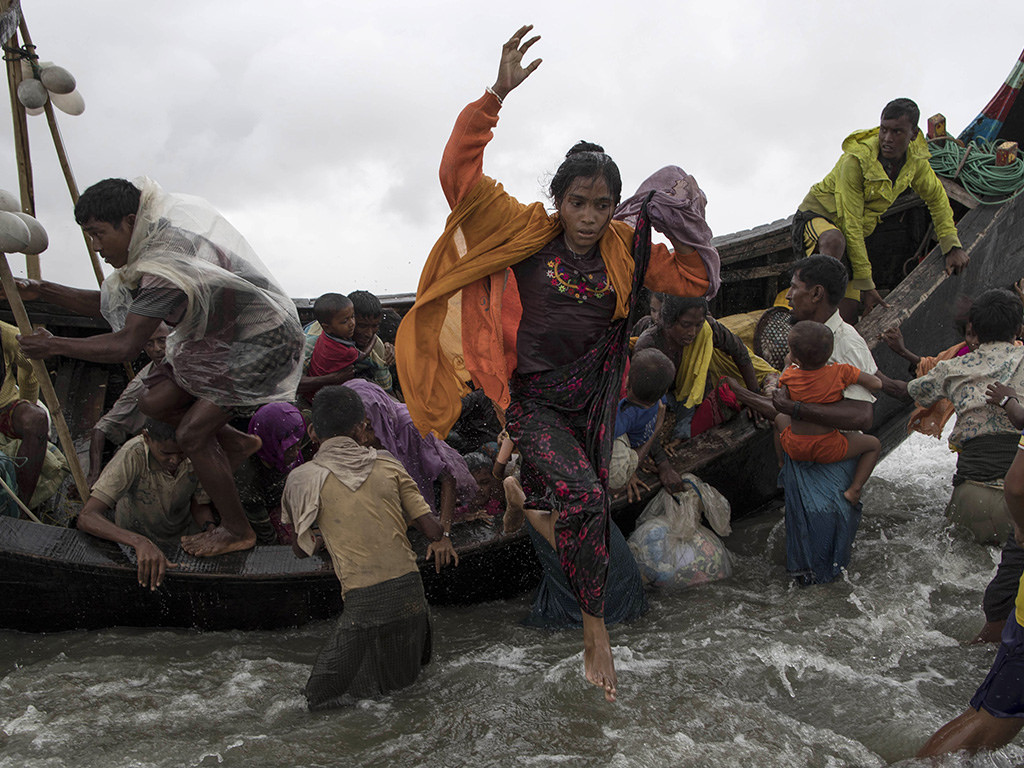Some of the most devastating wars in history have been fought in the name of religion. It is undeniable that differences in belief systems and ways of worship can cause irreconcilable disputes. Though religion plays a role in causing many conflicts, it also has the unique power to resolve them.
In part one, I examined the core beliefs and the history of the two religious groups at odds in Myanmar: the Buddhist majority and the Rohingya Muslim minority. As tensions continue to escalate and more Rohingya flee to surrounding countries, there is a growing need for international action. It is necessary to ask the questions: What players in the international arena have the power to bring about change and shape international perception, and what role does religion play in the response?
United States
The unshakeable U.S belief in democracy is inextricably tied to the equally unshakeable belief in religious freedom. Not only is the latter explicitly guaranteed to U.S. citizens in the First Amendment, it is also a key pillar of U.S. foreign policy. This belief was codified in the establishment of the State Department’s Office of International Religious Freedom in 1998, which works to protect religious minorities around the world from persecution.
This commitment to religious freedom shows in the U.S. response to the Rohingya crisis. Since the end of August, the U.S. has contributed nearly $104 million in assistance to displaced populations in Myanmar. Top U.S. government leaders have also strongly spoken up against the religious persecution in Myanmar, calling for an international response in multilateral forums, such as the United Nations Security Council and ASEAN.
There is an underlying contradiction, however, in the outspoken U.S. condemnation of the persecution against the Rohingya Muslims. The Trump administration’s anti-Muslim rhetoric and travel ban compromise the United States’ influence in fighting for religious freedom. The U.S. should reevaluate domestic policies before calling on the international community to follow our lead.
China
Perhaps the antithesis to the U.S. view on religious freedom, China has turned a blind eye to the internal oppression of its southern neighbor. The Chinese Communist Party is officially atheist and “prohibits its nearly ninety million party members from holding religious beliefs.” Recently, at the 19th party congress for the Chinese Communist Party, President Xi Jinping announced his plans to make any religion in China “more Chinese.” As China strives for more power on the global stage, Xi continues his quest to suppress religion or religious conflict to focus on China’s strength and economic development.
This strategy is playing out in real time in the Rakhine State. China’s main interest in Myanmar is the establishment of a strong government with which it can do business. In 2013, China completed the drilling of an oil pipeline in the Rakhine State that is connected to the Bay of Bengal. To protect these economic projects, the Chinese have blocked attempts to condemn the Myanmar military through the U.N. Security Council.
The Muslim World
If there was one glimmer of hope in the Rohingya crisis, it was the Muslim world overcoming divisions and offering support and refuge. The Sunni-Shia divide in the Middle East has caused deep disunity in the Muslim world in recent decades, which has culminated into violence and tension between majority-Sunni and majority-Shia states.
In the past, it has largely been Sunni-majority states such as Saudi Arabia that have provided the most support to the Rohingya Muslims fleeing Myanmar. Currently, Saudi Arabia houses approximately 250,000 Rohingya from previous waves of refugees. The kingdom, however, has done little more than voice condemnation in the recent conflict.
On the contrary, Iran, the Shia-majority state in the region, has taken a leading role in calling other Muslim countries with business interests in Myanmar to “ramp up pressure on the government there.” Additionally, the Organization of Islamic Cooperation (OIC), an organization consisting of 57 nations, met on the sidelines of the UN General Assembly and voiced a unified condemnation of the persecution of the Rohingya.
Now, OIC member countries should provide larger quantities of humanitarian relief and establish an agreement to take in more refugees, and leaders of Sunni and Shia countries should make joint declarations. Condemnation without action does little to alleviate the Rohingya’s plight.
The Pope
As the head of the Catholic Church, the Pope is an international figure with unique influence. He fights for social justice, advocates for the protection of the vulnerable, and represents a beacon of peace. It is nearly impossible to discuss religion and international diplomacy without mentioning the Pope. Indeed, Pope Francis traveled to Myanmar and Bangladesh earlier this month to speak with Myanmar leaders and Rohingya refugees.
While in Myanmar, Pope Francis never explicitly muttered the word “Rohingya,” noting that the Myanmar government does not recognize the minority group as official citizens. Perhaps this was out of respect to the newly developed diplomatic ties between the Holy See and Myanmar, or perhaps it was out of fear of a potential backlash against the Catholic minority living in the country.
Though he received international criticism for this, he claimed to have been “frank and open” in meetings with commander-in-chief Min Aung Hlaing and de facto leader Aung San Suu Kyi. When visiting with refugees in Bangladesh, he spoke about the cruelties and atrocities the Rohingya had endured.
Bringing it All Together
These four different responses to the crisis in Rohingya can be traced to the religious roots of each actor: the evangelical democracy of the United States, the apathetic atheism of China, the recent divisions in the Muslim world, and the peacemaker role of the Pope all provide policy prescriptions to addressing international humanitarian crises.
Religion can be the cause of great tragedy and conflict. But it can also be the force that brings reconciliation and refuge. The crisis in Rohingya exemplifies the need for peace that religion can bring, after witnessing the way that religion can burn.

